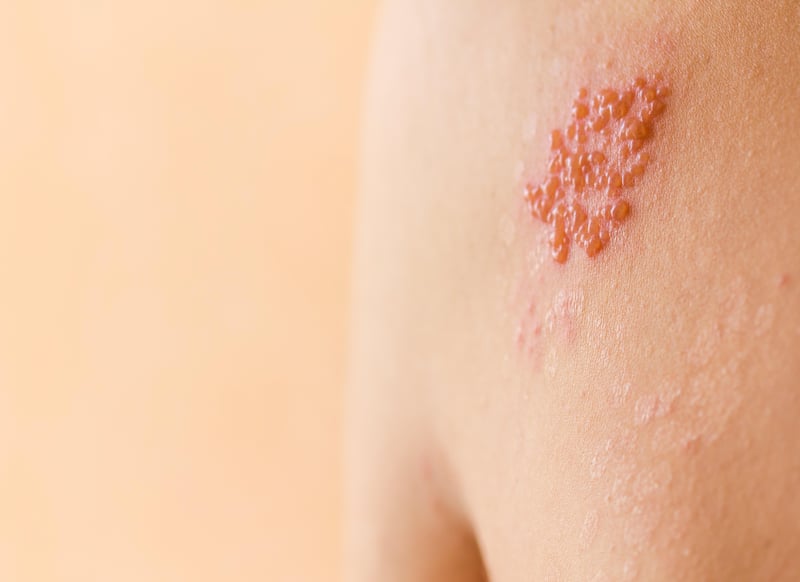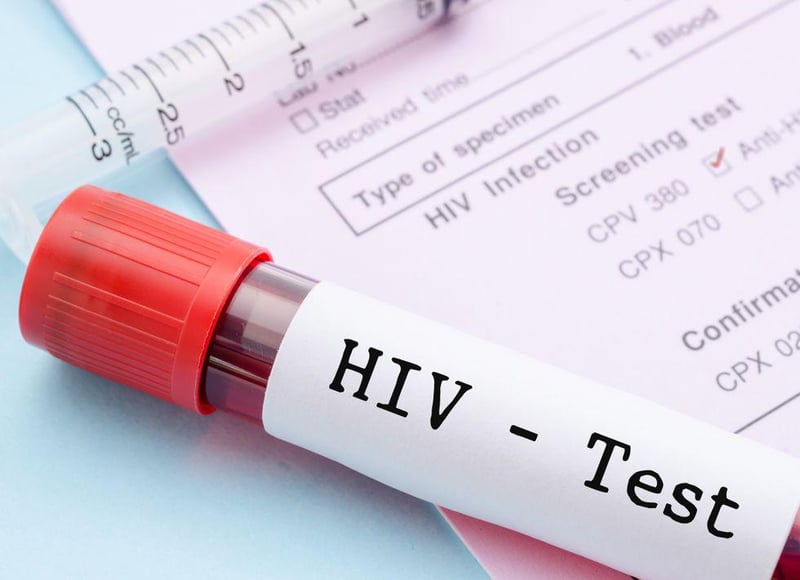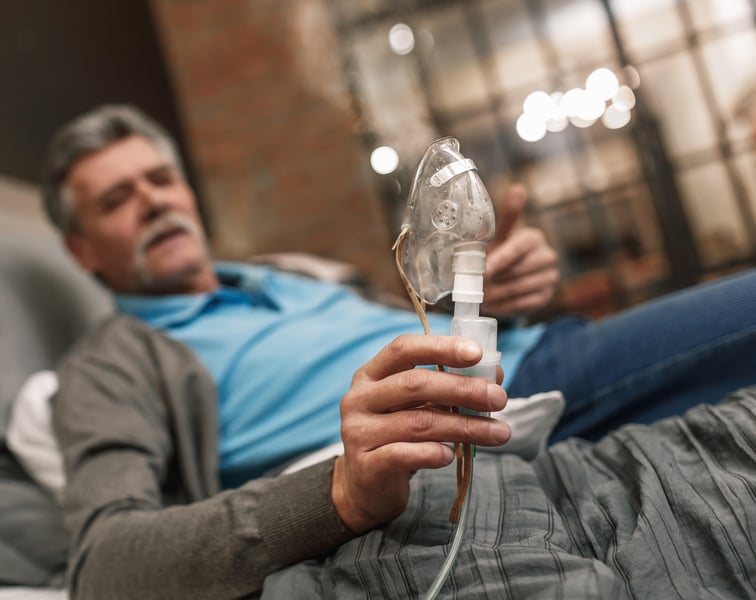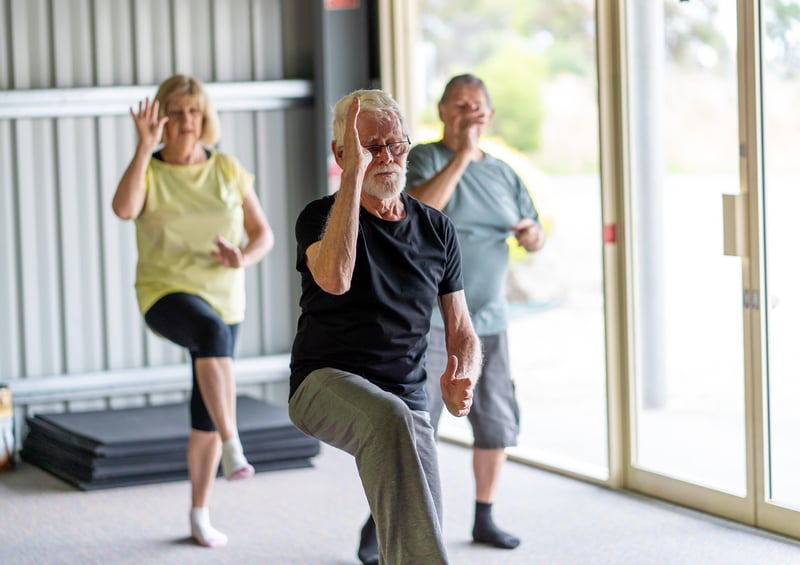Get Healthy!
199 Results for search "Heart / Stroke-Related: Coronary-Artery Disease".
Health News Results - 199
Liver disease can affect heart health and that includes even early forms of the disease, a new study reveals.
While it had previously been known that nonalcoholic fatty liver disease was associated with cardiovascular death, the relationship was poorly understood, said researcher Dr. Alan Kwan. He is a c...
- Cara Murez HealthDay Reporter
- |
- December 8, 2022
- |
- Full Page
Manufacturers make all kinds of health claims, but can taking a dietary supplement actually lower your heart disease risk?
A comprehensive analysis of prior research suggests that in certain cases the answer is yes. Some types of supplements -- such as omega-3 fatty acids, folic acid and coenzyme Q10 (CoQ10) -- do provide a cardiovascular leg up.
But many supplements were found...
- Alan Mozes HealthDay Reporter
- |
- December 7, 2022
- |
- Full Page
People who've had a bout of shingles may face a heightened risk of heart attack or stroke in later years, a new, large study suggests.
Anyone who ever had chickenpox can develop shingles -- a painful rash that is caused by a reactivation of the virus that causes chickenpox. About one-third of Americans will develop shingles in their lifetime, according to the U.S. Centers for Disease...
- Amy Norton HealthDay Reporter
- |
- December 5, 2022
- |
- Full Page
Doctors give men and women different advice to head off heart disease, even though guidelines for both are the same.
Men were 20% more likely to be prescribed statins to lower blood levels of bad cholesterol compared with women, a new study found.
Women, meanwhile, were 27% more likely to be advised to lose weight or reduce their salt intake, and 38% more likely to receive recommen...
- Cara Murez HealthDay Reporter
- |
- December 5, 2022
- |
- Full Page
The winter holidays are a time of celebrating and sharing precious time with family and friends, but they can also be deadly: More people die of heart attacks on Christmas Day than on any other day of the year.
Experts aren't certain what's behind that troubling fact, but they offer some suggestions to help ensure that you and your loved ones aren't among them.
"The holidays are a ...
- Cara Murez HealthDay Reporter
- |
- December 2, 2022
- |
- Full Page
Black adults who undergo a common procedure to open up clogged arteries are readmitted to the hospital more often than their white peers. They're also more likely to die in the years after treatment, a new study finds.
Researchers looked at how patients fared following balloon angioplasty and coronary stenting -- "one of the most common cardiovascular procedures performed in the U.S....
- Alan Mozes HealthDay Reporter
- |
- November 30, 2022
- |
- Full Page
Toss out your salt shaker if you want to lower your risk of heart disease, a new study suggests.
Even if you already follow a low-salt diet, sprinkling salt on your food can raise your risk for heart disease, heart failure and plaque in cardiac arteries, researchers report.
"Compared with people who always added salt to foods -- usually at the table -- those who sometimes, rare...
- Steven Reinberg HealthDay Reporter
- |
- November 30, 2022
- |
- Full Page
Persistent asthma may take a toll on the heart, not just the lungs, a new study suggests.
When the respiratory condition is relentless, it appears tied to plaque in the carotid arteries, increasing the risk for heart attack and stroke, researchers say.
The carotid arteries -- large arteries on the sides of the neck -- carry blood to the brain.
In a study of more than 5,...
- Steven Reinberg HealthDay Reporter
- |
- November 29, 2022
- |
- Full Page
Shoveling snow is a strenuous workout that poses risks for people with heart conditions.
"We have to think of shoveling snow as a pretty significant exertion, like an exercise,"said Dr. Donald Ford, chair of family medicine at the Cleveland Clinic, in Ohio. "So if you're going out...
- Cara Murez HealthDay Reporter
- |
- November 24, 2022
- |
- Full Page
Blood levels of HDL, the famously "good" kind of cholesterol, may not make a big difference to heart health after all -- particularly for Black people, a large new study suggests.
The study, of nearly 24,000 U.S. adults, found that low HDL levels were tied to a somewhat higher risk of heart attack among white people. That was not the case for Black adults, however.
Meanwhile, high H...
- Amy Norton HealthDay Reporter
- |
- November 21, 2022
- |
- Full Page
Regular exercise has long been hailed as a great way to preserve heart health, but could a morning workout deliver more benefits than an evening visit to the gym?
New research suggests that for women in their 40s and up, the answer appears to be yes.
"First of all, I would like to stress that being physically active or doing some sort of exercise is beneficial at any time of day,"no...
- Alan Mozes HealthDay Reporter
- |
- November 21, 2022
- |
- Full Page
Americans aged 25 to 44 -- so-called millennials -- are dying at significantly higher rates from three leading killers than similarly aged people just 10 years ago, the latest government data shows.
Looking at data collected between 2000 and 2020, the new report from the U.S. National Center for Heal...
- Ernie Mundell HealthDay Reporter
- |
- November 16, 2022
- |
- Full Page
Evaluating a person's psychological stress can be a good way to gauge their risk of heart and blood vessel disease, new research suggests.
And a brief questionnaire could help with the assessment, the study findings showed.
"Our study is part of the accumulating evidence that psychological distress is a really important factor in a cardiovascular diagnosis, such as the other health ...
- Cara Murez HealthDay Reporter
- |
- November 9, 2022
- |
- Full Page
Millions of people take daily medication to lower their cholesterol levels and prevent heart attacks, but there hasn't been a drug that targets a dangerous type of cholesterol in the blood known as lipoprotein(a), or Lp(a).
That's why a new study of an investigational drug called olpasiran, which blocks the production of apolipoprotein(a) -- a key component of Lp(a) -- is generating a lot...
- Denise Mann HealthDay Reporter
- |
- November 7, 2022
- |
- Full Page
Folks suffering chest pain from clogged arteries appear to have some true flexibility in choosing the medical care that's right for them, researchers report.
That's because their overall risk of death is about the same whether they choose aggressive surgical treatment or a more conservative approach focused on medication and lifestyle changes, according to seven-year clinical trial result...
- Dennis Thompson HealthDay Reporter
- |
- November 7, 2022
- |
- Full Page
Experts are once again advising doctors and women against using menopausal hormone therapy to ward off chronic diseases -- 20 years after a landmark trial dashed those hopes.
In updated recommendations, the U.S. Preventive Services Task Force (USPSTF) is reiterating its past advice on men...
- Amy Norton HealthDay Reporter
- |
- November 1, 2022
- |
- Full Page
Less than a year after the first-ever transplant of a pig heart into a human patient, doctors are reporting that the heart showed unexpected changes in its electrical system before the recipient ultimately died.
The changes are not believed to have contributed to the patient's death. But experts said that the observation will help in preparing for any such transplants in the future.
- Amy Norton HealthDay Reporter
- |
- October 31, 2022
- |
- Full Page
A vitamin D deficiency puts you at risk for more than just weakened bones, a major new study reports.
Too little vitamin D in your system can increase your overall risk of premature death, as well as your specific risk of dying from cancer, heart disease or lung disease, acco...
- Dennis Thompson HealthDay Reporter
- |
- October 25, 2022
- |
- Full Page
A person with advanced heart failure may often need a heart transplant or a mechanical heart pump to survive.
But white patients are twice as likely as Black patients to get this critically important care, a new study finds, and racial bias may be the reason why.
- Cara Murez HealthDay Reporter
- |
- October 19, 2022
- |
- Full Page
As men and women enter their golden years, those who regularly fail to get a good night's sleep face a higher risk for developing not one but two serious chronic illnesses at the same time, new research shows.
Researchers from France, Finland and United Kingdom tracked the self-reported sleep routines and health status of nearly 8,000 Britons from ages 50 to 70.
While the new analys...
- Alan Mozes HealthDay Reporter
- |
- October 19, 2022
- |
- Full Page
While a common non-drug treatment called ablation exists for the heart rhythm disorder atrial fibrillation (a-fib), the procedure can be more problematic for women than for men.
A-fib, a chaotic electrical pattern in the upper chambers of the heart, affects up to 20% of Americans during their lifetimes. It can b...
- HealthDay Reporter
- Cara Murez
- |
- October 19, 2022
- |
- Full Page
Taking that often-cited 10,000 steps a day -- or even slightly fewer -- may indeed be enough to improve your health, a new study suggests.
Researchers found that among 6,000 middle-aged and older adults, those who got at least 8,000 to 9,000 steps daily had reduced risks of developing an array of conditions over seven years. The list included obesity, high blood pressure, diabetes, sleep ...
- Amy Norton HealthDay Reporter
- |
- October 17, 2022
- |
- Full Page
That e-bike might make hilly rides a lot more fun, but it's not improving your fitness the way a good old-fashioned bicycle would, a new study shows.
People riding e-bikes are 44% less likely to reach weekly targets for physical activity than those on regular bicycles, according to a re...
- HealthDay Reporter
- By Dennis Thompson HealthDay Reporter
- |
- October 12, 2022
- |
- Full Page
Researchers studying fractures in older adults found a higher death rate when those fractures were closer to the center of the body and also when patients had particular underlying health issues.
This information coul...
- HealthDay Reporter
- By Cara Murez HealthDay Reporter
- |
- October 11, 2022
- |
- Full Page
Retirees, it's time to get up out of your easy chair and get moving.
That's the message from a Finnish study that used a wrist-based device to determine just how much retired adults were moving every day.
"Based on our research, people who are retiring should aim to increase the amount...
- HealthDay Reporter
- By Cara Murez HealthDay Reporter
- |
- October 7, 2022
- |
- Full Page
Many Americans with heart disease also have limited access to food, and this dangerous combination is growing rapidly, a new study finds.
"Food insecurity is a common problem...
- HealthDay Reporter
- By Cara Murez HealthDay Reporter
- |
- September 30, 2022
- |
- Full Page
Places of worship may provide respite for Black men that not only enhances their lives, but may extend them, new research suggests.
"Black men have been oppressed, commodified, surveilled and criminalized like no other group in U.S. history and they often experience disproportionately high levels of social and psychological stress from
Folks who drink two or three cups of coffee daily appear to live longer than people who don't care for the beverage, new research shows.
Coffee lovers also seemed to have healthier hearts, which might contribute to the longevity boost, said ...
- HealthDay Reporter
- By Ernie Mundell HealthDay Reporter
- |
- September 27, 2022
- |
- Full Page
As people with HIV age, their odds for heart attack rise -- and those with untreated hepatitis C have an even higher risk, a new study finds.
"HIV and hepatitis C co-infection occurs because they share a transmission route -- both viruses may be transmitted through blood-to-blood contac...
- HealthDay Reporter
- By Cara Murez HealthDay Reporter
- |
- September 21, 2022
- |
- Full Page
New research suggests that attention deficit hyperactivity disorder (ADHD) may trigger more than just psychiatric complications: Adults suffering from ADHD may also be more likely to develop some type of cardiovascular disease.
"Clinicians need to c...
- Steven Reinberg HealthDay Reporter
- |
- September 20, 2022
- |
- Full Page
People with heart disease should be screened for sleep apnea, the authors of a new study suggest. They found that consistent use of a CPAP machine lowered the chances of winding up back in the hospital for heart issues.
"Cardiovascular disease is the No. 1 killer of older adults in the world," said study author Jenni...
- HealthDay Reporter
- By Cara Murez HealthDay Reporter
- |
- September 20, 2022
- |
- Full Page
There's an easy way to reduce your risk for dementia, heart disease and cancer: Start walking.
Getting in those recommended 10,000 steps a day makes a real difference, new research affirms, but even fewer will pay big dividends. No matter how many you log, however, step up your pace for...
- Steven Reinberg HealthDay Reporter
- |
- September 13, 2022
- |
- Full Page
Doctors have long thought men had more risk of developing atrial fibrillation (a-fib) than women, but the reverse may actually be the case.
When researchers accounted for height differences between men and women, a new study revealed that women were 50% more likely to develop a-fib, an irregular heart rhythm disorder, than men.
"This is the first study to show an actual flip in the ...
- HealthDay Reporter
- By Cara Murez HealthDay Reporter
- |
- September 1, 2022
- |
- Full Page
Research has linked heart disease to specific autoimmune diseases such as rheumatoid arthritis and lupus. Now, a huge study shows that autoimmune diseases as a group increase your chances of developing heart ills.
Autoimmune diseases such as psoriasis, multiple sclerosis, lupus erythematosus and type 1 diabetes occur when the body engages in friendly fire against its own organs, tissues, ...
- Denise Mann HealthDay Reporter
- |
- August 31, 2022
- |
- Full Page
Breastfeeding can deliver long-term heart benefits to both mother and child, a new statement from the American Heart Association (AHA) says.
The immune systems of newborns and infants can be strengthened by breast milk, which has long been a...
- HealthDay Reporter
- By Sydney Murphy HealthDay Reporter
- |
- August 26, 2022
- |
- Full Page
Here's a fresh prescription for seniors who want to live longer and lower their odds of dying from cancer or heart disease: Lace up your running shoes or grab your tennis racket.
A new U.S. National Cancer Institute study found older folks who played racquet sports lowered their risk of deat...
- Steven Reinberg HealthDay Reporter
- |
- August 25, 2022
- |
- Full Page
A smartphone video could detect a blocked blood vessel in your neck that could cause a stroke, a new study suggests.
The American Heart Association says videos may provide a non-invasive way to screen people who are at risk of stroke.
Nearly 87% of strokes are the ischemic type, which happens when fatty depos...
- HealthDay Reporter
- By Cara Murez HealthDay Reporter
- |
- August 17, 2022
- |
- Full Page
Women who go into menopause when they are younger than 40 are at greater risk of heart problems, reports a new Korean study of more than 1.4 million females.
Women with premature menopause had an overall 33% higher risk of
Middle-aged people could add years to their lives just by getting off the couch and going for a walk every day -- though it wouldn't hurt to do even more, a large new study suggests.
The researchers followed over 100,000 Americans for decades and found what many have shown before: People who exercise as much as health experts recommend tend to live longer.
- Amy Norton HealthDay Reporter
- |
- July 26, 2022
- |
- Full Page
It may sound bananas, but new research shows eating this potassium-rich food can improve heart health.
Avocados and salmon also are high in potassium, helping counteract the negative effects of salt in the diet and
In a mix of bad and good news, a new large study confirms that COVID can raise the risks of new-onset heart trouble and diabetes -- though those threats typically wane again after a few months.
The study, of nearly 430,000 British COVID patients, found that the risks of suffering a
Deaths from heart-related causes have dropped over the past 20 years, though differences persist by race and ethnicity as well as where people live and their access to care.
The U.S. National Institutes of Health (NIH), which partially funded the research, detailed the results of three papers. The findings were published July 18 in the American Heart Association journal Circulation
- HealthDay Reporter
- By Cara Murez HealthDay Reporter
- |
- July 19, 2022
- |
- Full Page
Sometimes just looking at a person can give clues to their likelihood of developing long COVID after a bout with the virus.
For example, obese people are five times more likely to suffer long COVID symptoms that persist at least three months after their infection clears, a major new U.S. s...
- Dennis Thompson HealthDay Reporter
- |
- July 19, 2022
- |
- Full Page
Every town wants low crime rates. But a new finding may offer a whole new reason to advocate for the change: Falling crime rates may lower heart disease fatalities.
An analysis of 2000-2014 data from Chicago illustrated a significant decline in violent crime. Across the city, the drop in total crime was 16%, while simultaneously there was a 13% decrease in
People who douse their meals in salt may have a shorter life than those who rarely reach for the salt shaker, a large new study suggests.
The study, of more than 500,000 British adults, found that those who always sprinkled salt on their food at the table were 28% more likely to die prematurely than people who rarely added salt to their meals.
On average, salt lovers shaved about tw...
- Amy Norton HealthDay Reporter
- |
- July 11, 2022
- |
- Full Page
COVID-19 has officially joined heart disease and cancer as a leading cause of death in the United States for two years in a row.
The virus was the third-leading cause of death for the period between when the pandemic began...
- HealthDay Reporter
- By Cara Murez HealthDay Reporter
- |
- July 5, 2022
- |
- Full Page
The obesity epidemic isn't slowing down anytime soon, and new research delivers even worse news: Most American adults have not only gained more weight, but they gained most of it earlier in life.
The statistics were grim: More than half of Americans in the representative sample had gained 5% or more body weight during a 10-year period. More than one-third of Americans had gained 10% or mo...
- Cara Murez HealthDay Reporter
- |
- July 5, 2022
- |
- Full Page
Less than 7% of U.S. adults are in good cardiometabolic shape, and new research warns the trend is only getting worse.
Cardiometabolic health is an umbrella term that includes blood pressure, blood sugar, blood cholesterol, weight and/or the presence of heart disease.
"While w...
- Denise Mann HealthDay Reporter
- |
- July 5, 2022
- |
- Full Page
While it's more widely known that polluted air can harm human health, another danger may be lurking at your feet.
New research shows that soil, too, can contain contaminants that can impact health. These include pesticides and heavy metals.
In this study, sci...
- HealthDay Reporter
- By Cara Murez HealthDay Reporter
- |
- July 4, 2022
- |
- Full Page




















































